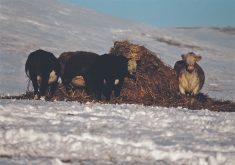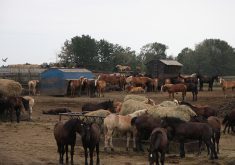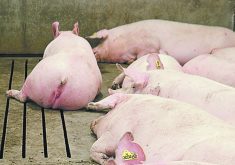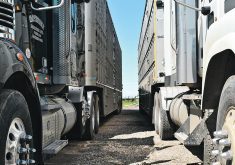The video of the pigs stopped in a truck at Kamloops was posted online by an animal rights advocacy group
The Canadian Food Inspection Agency is reviewing a video posted online of pigs in apparent distress while being transported.
The CFIA said in an email that it is investigating.
Animal Justice, an animal rights advocacy group, posted the video of pigs in a truck stopped at Kamloops, B.C. It said the temperature was 32 C and the pigs were in cramped conditions and were panting and foaming at the mouth. The group has posted other videos of alleged cruelty and is a strong advocate for changing Canada’s livestock transportation laws.
Read Also

Beef check-off collection system aligns across the country
A single and aligned check-off collection system based on where producers live makes the system equal said Chad Ross, Saskatchewan Cattle Association chair.
“This type of suffering happens to millions of farmed animals across the country, all summer long. But under federal law, it’s illegal to overcrowd animals or to expose them to extreme temperatures,” said an Animal Justice email.
“The trucks used by the industry have no climate control or ventilation, but animals are still transported every day of the year. Animals regularly suffer and die from overheating or freezing.”
Gary Stordy of the Canadian Pork Council said the organization saw the video and asked veterinarians to provide an opinion about the animals’ condition.
Producers and transporters must make sure animals are well cared for and arrive at their destinations in good health, he said.
The federal transportation regulations are still under discussion covering distance and variables like weather conditions.
“Any regulations have to have the animal’s best interest in mind,” he said in an interview.
However, clear responses are needed when things go wrong or a bad decision has been made.
“Our industry has to take responsibility for what it does but we also have to explain some of our practices,” he said.
Statistics from the CFIA said in 2016 Canadian producers shipped more than 20 million market weight hogs to federally inspected plants. The agency said for every 10,000 animals shipped, 32 animals, or 0.3 percent, were found to be sick, injured or dead at arrival.


















